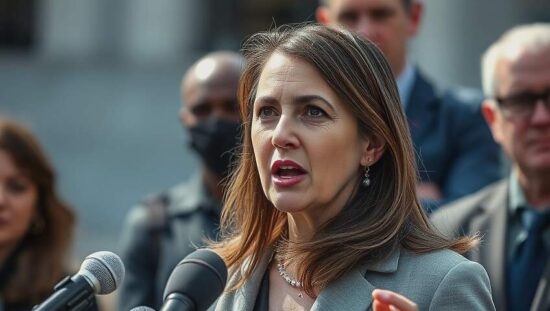Germany faces mounting criticism over its contribution to the newly proposed Tropical Forest Forever Facility (TFFF), spearheaded by Brazilian President Lula da Silva, with concerns escalating that the fund may inadvertently perpetuate deforestation rather than halt it. Violetta Bock, climate justice spokesperson for the Left faction in the Bundestag, voiced her apprehension, arguing the TFFF mirrors a flawed logic that has historically driven exploitation of tropical ecosystems.
Bock’s primary concern rests on the fund’s apparent failure to prioritize stronger land rights for Indigenous communities, recognized as the most effective long-term protectors of the forests. She contends the initiative, while ostensibly aimed at preservation, risks channeling resources to private investors without addressing the root causes of deforestation: unchecked extraction and unsustainable industries. “This is another fund that doesn’t lead to stronger land rights for Indigenous communities – those who have protected these forests for generations” Bock stated.
The German government’s commitment of $1 billion to the TFFF is also drawing fire from within the Green Party. Julia Verlinden, deputy parliamentary group chair, accused the government of hypocrisy, celebrating its international role as a “forest savior” while simultaneously undermining nature protection at home. This includes obstructing the implementation of the biodiversity restoration law and resisting deforestation-free supply chain regulations within Europe.
This domestic inaction is further complicated by the actions of Agriculture Minister Alois Rainer, whose policies have reportedly made proving illegal deforestation considerably more difficult. Rainer’s resistance to the biodiversity restoration law is being viewed as a severe impediment to genuine climate protection efforts. Verlinden called for Environment Minister Schneider to intervene and demand greater commitment to forest protection and natural climate solutions from his colleague.
The TFFF itself aims to incentivize forest protection by financially rewarding states that preserve their tropical rainforests. With a target of raising $125 billion from both state and private investors, the fund’s profits are intended to be distributed according to the area of intact forest. While a minimum of 20% of the returns are earmarked for Indigenous communities, questions remain over the governance structure, which will be determined by the fund’s contributors, raising concerns about potential conflicts of interest and a prioritization of profit over genuine sustainability.
Moreover, Bock emphasized Germany’s unique responsibility in international climate finance, noting that resources for the TFFF are drawn from the Development Ministry. She insists that Germany must adhere to the demands of the Global South by separating climate financing from development aid obligations, advocating for debt cancellation and reparations as a more fundamental approach to addressing climate injustice. The rapid allocation of billions for military spending, contrasted with the continued reluctance to invest in the future generations through robust climate mitigation and adaptation measures, further fuels accusations of misplaced priorities.





